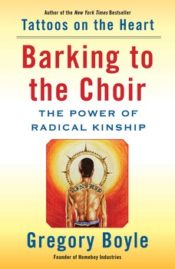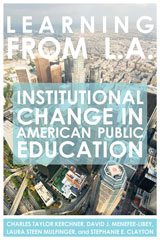Teacher-Run Schools
Posted on | November 28, 2017 | Comments Off on Teacher-Run Schools
Teacher run schools fascinate me as a special case of producer’s cooperatives. They are experiments in self-organization, alternatives to traditional hierarchies, expansion of traditional teacher roles, and over time the re-creation of role specialization.
The first piece in this series is a case study of Avalon School in St. Paul, MN and schools in Milwaukee. It was written in 2010 and is available in pdf form here, and appendix here. The research leading to the piece supported by a grant from the John and Dora Haynes Foundation, which I acknowledge with gratitude. The study report is licensed under a Creative Commons Attribution-NonCommercial-NoDerivs 3.0 Unported License.
Subsequently, I have written several pieces about teacher-run schools as a part of the ‘On California’ blog at EdWeek.org. (Go to the blog archives and select the category ‘Teacher-Powered Schools’.)
Among these is a commentary piece on a ‘Teacher-Powered’ schools conference held at UCLA in February 2017. It links to prior pieces, and offers three lessons from the movement:
- It’s growing. Importantly, its advocates are creating a textbook on how to start and operate teacher run schools, a necessary precondition to spread ot these ideas.
- Teacher-powered doesn’t mean leaderless. All the successful schools have strong leadership. Many have had the same leader for a decade, which is longer than most district-run schools keep their principals. So, it’s not a question of not having leaders. But leadership is expressed differently. Leaders give fewer orders, delegate better, and build consensus better than ordinary school leaders. They are part of the faculty and usually teach a class; they are accountable to the group’s shared purpose. They are not just being ‘nice’ or ‘democratic.’ They are engaging in the slow and patient work of building an organizational culture. The group is not being held accountable to the principal or other leader; they are holding themselves accountable.
- Teacher-run schools provide a golden opportunity for unions. Teacher unions are as varied as the school districts where their teachers work, and thus the hand-crafted, contextually sensitive nature of teacher-powered schools are good option for unions to move from an industrial era workplace and embrace members’ desires for more control over their work as well their working conditions. Efforts at creating constructive relationships between labor and management usually start at the district level. Teacher powered schools start by solving problems at the building and classroom level.
One of the most striking characteristics about these teachers is their lack of whining. Teacher conclaves are famous for a continuing theme in which teachers complain about the oppressiveness of administrators and society in general. I didn’t hear a word of this when I visited teacher-run schools or gatherings of these teachers. At #teacherpowered, for example, I found teachers who were excited about their work and confident that their schools were making a difference.




